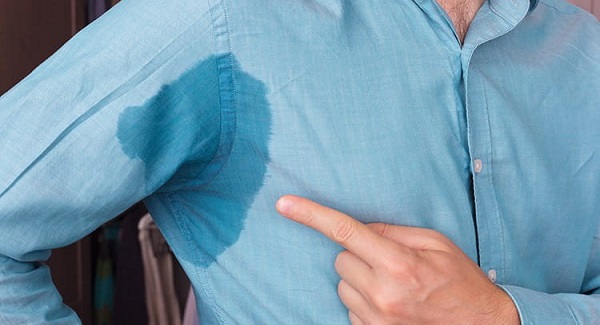Sweating is how your body cools itself down. When you sweat, your body secretes liquid through sweat glands, which cover your skin.
This liquid is mostly water, but it also contains salt, sugar, and other chemicals. Although your body tries to retain these chemicals, some are lost as you sweat. As sweat evaporates, it cools your skin, lowering your body temperature. This process is also known as perspiration.
READ ALSO:Â Stay healthy by having these nutritious foods for breakfast
Sweating is normal and healthy, especially when your body temperature rises, like when you're exercising. But sometimes, sweating can be excessive or embarrassing — and there are a few ways you can help stop it.
If you'd like to sweat less, here's what you need to know to better control your sweating.
1. Use an antiperspirant
An antiperspirant is a topical substance that blocks your sweat glands. Antiperspirants have metals like zinc and aluminum that block the pores from releasing sweat. This is different from a deodorant, which just covers the smell of sweat.
While antiperspirants are most commonly used on the underarms, they can also be used on the hands, feet, and face for people with hyperhidrosis, a medical condition that causes excessive sweating. While antiperspirants don't have any major health risks, they can sometimes irritate the skin and cause rashes or pimples.
Antiperspirants are available over-the-counter, and are often combined with deodorant. Although they're commonly referred to as deodorant, you'll notice the word "antiperspirant" on the container.
Stronger antiperspirants are available by prescription, says Tsippora Shainhouse, MD, a dermatologist at SkinSafe Dermatology and Skin Care.
Consider these tips for using antiperspirants to stop sweating:
- Apply before you start sweating. Antiperspirants need to be applied before you start sweating in order to work effectively. "The key is to apply them to dry skin, so that they can form a salt crystal in the sweat duct," Shainhouse said. The minerals in the antiperspirant, such as salt, block your sweat ducts and prevent sweat from escaping.Â
Â
- Plan ahead. Antiperspirants can be applied at night, and they will often last into the next day. "Applying an antiperspirant at night is ideal as the body temperature is lower and often skin is drier allowing for a more effective application," says Tara L. Kaufmann, MD, a dermatologist at Stony Brook University Hospital.
Â
- Consider shaving. "Shaving your armpit hair can help make antiperspirants more effective and minimize odor from sweating," Kaufmann says.
2. Limit spicy, fatty, or salty foodsÂ
What you eat and drink can affect how much you sweat. According to Kaufman, the following foods can increase sweating:Â
- Spicy foods, like chili or hot peppers. As your body processes hot or spicy foods and drinks, your heart rate can increase, which raises your internal body temperature and causes you to sweat.Â
Â
- Fatty, processed foods, like packaged sausages. Your body needs to work harder to process these fatty foods, which can raise temperature.Â
Â
- Very salty foods, like potato chips. Your body may try to process extra salt by sweating.Â
"Dietary changes to minimize these foods can lead to better body temperature regulation and less sweating," Kaufmann says.Â
Instead, you should consume fruits and vegetables, which contain lots of water and can help keep you cool.Â
3. Stay hydrated
Drinking water can help cool the body and reduce sweating, Shainhouse says.Â
There's a simple way to make sure you're drinking enough water each day. Divide your weight (in pounds) in half — that's how many ounces of water you need. So, if you weigh 150 pounds, that means you should be drinking 75 fluid ounces every day — or about 9 eight-ounce cups.Â
READ ALSO:Â 17 health benefits of moringa powder
Avoid drinks containing caffeine and alcohol, Kaufmann says. Both of these substances can raise your heart rate temporarily, increasing your temperature and making you sweat, which dehydrates you in the process — the opposite of what you want.Â
4. Wear breathable clothing
To avoid sweating, you want to keep cool. Opt for loose-fitting clothes made of breathable fabrics, like cotton, linen or moisture-wicking fabric.Â
Avoid tight-fitting materials and synthetic fibers like nylon, rayon or silk, which can cause you to be hot and sweat more, Kaufmann says. The color of your clothes likely won't make a huge difference.
Source:Â insider.com





